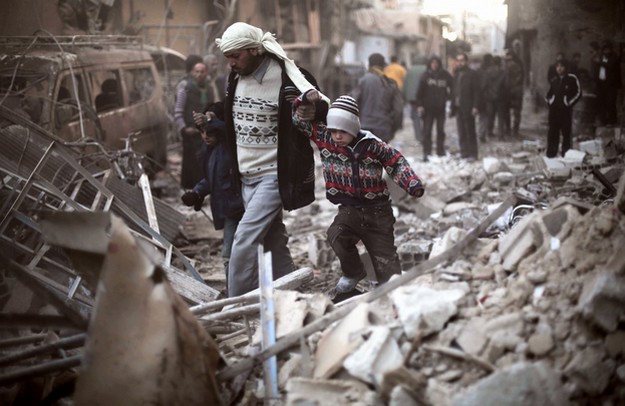The negotiations are backed by both the United States and Russian and seek to put an end to the bloody conflict

The latest round of Syria peace talks 2016 commencing from Monday will allow the regime and opposition figure engage for the very first time in order to hold concrete talks regarding the future of the country.
The new Syria peace talks in Geneva are the result of the efforts of the international community that seeks end the Middle Eastern conflict which has claimed the lives of more than a quarter of a million people.
Staffan de Mistura, the UN special envoy, revealed that the Syria peace talks will start on 14th March. The date is also the eve of the anniversary of the five year war in Syria.
Analysts are saying that there have been fundamental changes on the ground since the collapse of the last round of talks in February, however, the differences between the regime and the opposition will put hurdles in the way of a final settlement.
One of these hurdles – and the most important one – is the fate of the incumbent Syrian President Bashar al Assad. The other matters to be resolved include the future elections for the president, and the type of the new Syrian government.
During the last round of Syria peace talks held in Geneva, there was still fighting going on in many parts of the country. Aleppo in the north of the country was seeing intense battle between the regime and the opposition. But a truce brokered by Russia and America on February 27 has miraculously held despite accusations of breach on both sides.
Syrian jets have also reduced their daily bombardment of opposition held areas. A decrease in violence has permitted humanitarian aid to be delivered to hundreds of thousands of people across the country in besieged areas.
De Mistura has announced that the Syrian peace talks will last two weeks. The agenda of the talks will be the formation of a new inclusive Syrian government, a new constitution, and presidential elections within the next eighteen months.
According to De Mistura, the negotiations will last two weeks and would first discuss an inclusive new government followed by a fresh constitution, then parliamentary and presidential elections in 18 months.
The point of contention between the negotiating parties is definitely President Bashar al Assad. The Syrian government has declared that he will not be discussed during the talks. In fact, Syrian foreign minister, Walid Muallem has outrightly stated that if the opposition wants to discuss the presidency then they need not come to Geneva.
Syrian Kurds have established autonomous zones in the north of the country and are hoping that they will be allowed to govern these areas by themselves. Kurds have largely been spared the wrath of the Syrian warplane. Kurd representatives have not been invited to the talks.
Almost half of Syria is controlled by hard-line extremist groups that may hinder the actual implementation of any deal that may be reached in Geneva.
